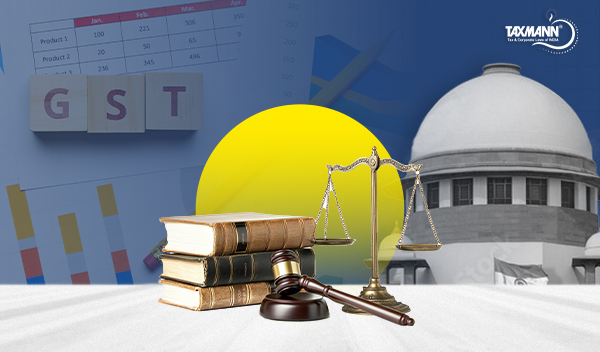Rule 96(10) is Ultra Vires to Section 16 of IGST Act and Unenforceable on Account of Being Manifestly Arbitrary | HC
- Blog|News|GST & Customs|
- 2 Min Read
- By Taxmann
- |
- Last Updated on 5 November, 2024

Case Details: Vinayaka Cashew Company v. Union of India - [2024] 167 taxmann.com 760 (Kerala)
Judiciary and Counsel Details
- Gopinath P., J.
- Nitish Sathesh Shenoy, Sukumar Nainan Oommen, Sherry Samuel Oommen, M.S. Insaaf Muhammedu & Sreelekshmi Ben, Advs. for the Petitioner.
- P.G. Jayashankar, (Sr.SC) & Mohammed Rafiq, (SPL.GP) for the Respondent.
Facts of the Case
In the instant case, the petitioner challenged the validity of Rule 96(10) of the CGST Rules, 2017. The Rule 96(10) was inserted with effect from 23-10-2017 by Notification No. 53/2018-Central Tax, dated 9-10-2018.It provided that persons claiming a refund of IGST on the export of goods or services, should not have received supplies on which the benefit of certain notifications was availed. However, the concept of zero-rated supply in the provisions of Section 16 of the IGST Act, 2017, indicate that there is to be no export of taxes and on the goods being exported the exporter is entitled to a refund of the IGST paid on the export of goods.
The High Court noted that Section 16 of the Integrated Goods and Services Tax Act, 2017 does not impose any restriction on the right of the exporter to claim a refund of IGST paid on the export of goods or tax paid on input services or input goods used in the export of goods or services. The Court also noted that the provisions of Rule 96(10) of CGST Rules have undergone a series of amendments and the Rule as it presently stands imposes certain restrictions in the matter of refund of IGST.
High Court Held
The High Court held that Rule 96(10) is ultra vires section 16 of the IGST Act and unenforceable on account of being manifestly arbitrary as it produces absurd results not intended by the legislature. The High Court also directed that any action that was initiated or had culminated in an order against the petitioner on the basis of provisions contained in rule 96(10) would stand quashed.
Disclaimer: The content/information published on the website is only for general information of the user and shall not be construed as legal advice. While the Taxmann has exercised reasonable efforts to ensure the veracity of information/content published, Taxmann shall be under no liability in any manner whatsoever for incorrect information, if any.

Taxmann Publications has a dedicated in-house Research & Editorial Team. This team consists of a team of Chartered Accountants, Company Secretaries, and Lawyers. This team works under the guidance and supervision of editor-in-chief Mr Rakesh Bhargava.
The Research and Editorial Team is responsible for developing reliable and accurate content for the readers. The team follows the six-sigma approach to achieve the benchmark of zero error in its publications and research platforms. The team ensures that the following publication guidelines are thoroughly followed while developing the content:
- The statutory material is obtained only from the authorized and reliable sources
- All the latest developments in the judicial and legislative fields are covered
- Prepare the analytical write-ups on current, controversial, and important issues to help the readers to understand the concept and its implications
- Every content published by Taxmann is complete, accurate and lucid
- All evidence-based statements are supported with proper reference to Section, Circular No., Notification No. or citations
- The golden rules of grammar, style and consistency are thoroughly followed
- Font and size that’s easy to read and remain consistent across all imprint and digital publications are applied



 CA | CS | CMA
CA | CS | CMA
